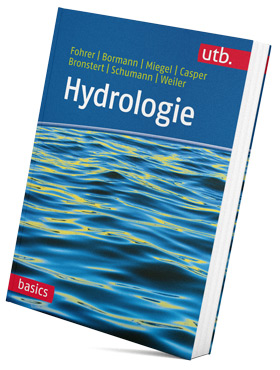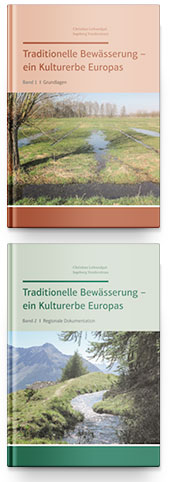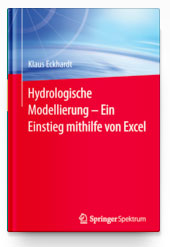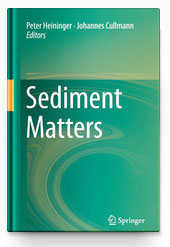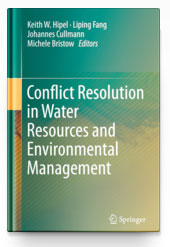Conflict Resolution in Water Resources and Environmental Management
Editors: Hipel, K.W., Fang, L., Cullmann, J., Bristow, M. (Eds.)
The latest developments regarding the theory and practice of effectively resolving conflict in water resources and environmental management are presented in this book by respected experts from around the globe. Water conflicts are particularly complex and challenging to solve because water and environmental issues span both the societal realm, in which people and organizations interact, and the physical world which sustains all human activities. For instance, when large-scale water diversions take place across political jurisdictions, conflicts may ensue among stakeholders within and across regions, while the water transfers may cause severe damage to sensitive ecological systems. Therefore, to arrive at realistic and fair resolutions, one must take into account not only the economics and politics of the situation but also the water quantity and quality changes that may occur within the altered hydrological system as well as the ecosystems contained therein. When the effects of climate change and the closely connected activities of energy production and usage are also considered, the complexity of the problem becomes even greater and messier. Accordingly, one must adopt an integrative and adaptive approach to water and environmental governance that specifically recognizes the conflicting value systems of stakeholders, including nature and future generations even though they are not present at the bargaining table. The 16 chapters in this leading-edge book are written by authors who presented their original research at the International Conference on Water Resources and Environment Research (ICWRER) 2013, which was held in Koblenz, Germany, from June 3rd to 7th, 2013, and subsequently submitted expanded versions of their research for review and publication in this timely book. The rich range of contributions are put into perspective in the first chapter and then categorized into four main interconnected parts:
Part I: Management and Evaluation
Part II: Global, Trans-boundary and International Dimensions
Part III: Consensus-building, Bargaining and Negotiation
Part IV: Ecological and Socio-economic Impacts
Springer-Verlag







